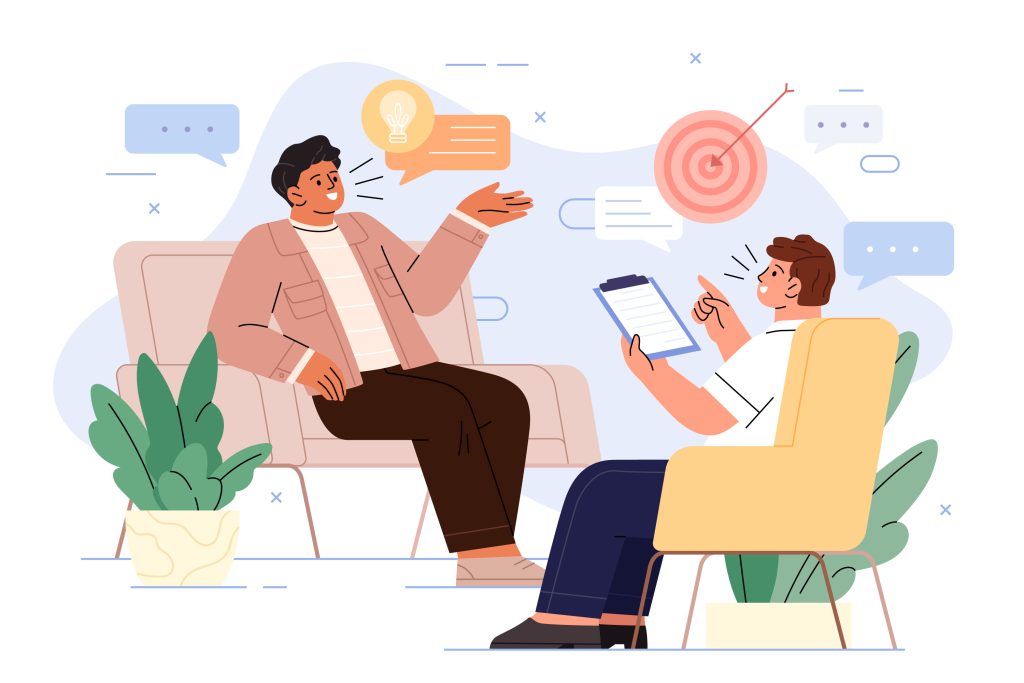Effective communication is at the heart of every successful relationship, whether personal or professional. While many focus on speaking clearly or persuasively, one of the most overlooked aspects of communication is listening. Listening goes beyond hearing words; it requires full engagement, understanding, and thoughtful responses. In a world where distractions are everywhere, mastering the art of listening can make a significant difference in how we connect with others.
In this article, we’ll explore why this skill is a vital communication tool and how it can enhance relationships, improve professional performance, and foster deeper understanding.

What is Active Listening?
Active listening is the practice of fully concentrating on what is being said, rather than passively hearing the speaker’s words. It involves not only listening to the message but also understanding the underlying emotions, intentions, and perspectives. It requires focusing on the speaker, making eye contact, and avoiding distractions. It also involves providing feedback, both verbal and non-verbal, to demonstrate understanding and empathy.
The Importance of Listening in Communication
Effective communication is not just about talking; it’s about connecting, understanding, and responding appropriately. Here’s why it matters:
1. Strengthening Relationships
In any relationship, whether personal or professional, listening fosters trust and empathy. When people feel heard, they are more likely to open up and share their thoughts and feelings. By listening attentively, you can better understand their perspectives, build stronger emotional connections, and resolve conflicts more effectively.
2. Enhancing Professional Performance
In the workplace, listening is essential for effective teamwork, problem-solving, and decision-making. When employees or leaders listen actively, they can better understand the needs and concerns of colleagues, clients, and stakeholders. This leads to more informed decisions, fewer misunderstandings, and a more harmonious work environment.
3. Resolving Conflicts Effectively
Conflict is a natural part of human interaction, but how we handle it can make a significant difference. Active listening helps to manage conflict by ensuring that all parties feel heard and understood. Rather than focusing on your own response or point of view, listening allows you to fully comprehend the concerns of others, making it easier to find common ground and reach a solution that satisfies everyone involved.
4. Improving Personal Growth and Self-Awareness
When you practice active listening, you are forced to focus on others rather than your own thoughts and responses. This fosters greater self-awareness and empathy. It encourages you to consider perspectives outside of your own, which can enhance your emotional intelligence. By becoming a better listener, you learn more about yourself and others, which can lead to personal growth.
The Skills Involved in Active Listening
Active listening is not a passive activity. It requires several key skills that work together to create a meaningful exchange:
1. Full Attention
One of the fundamental aspects of active listening is giving the speaker your undivided attention. This means putting away distractions, making eye contact, and focusing on what the speaker is saying. When you’re fully present, the speaker feels valued, and you’re more likely to absorb the message being conveyed.
2. Reflective Feedback
After listening, it’s important to reflect on what you’ve heard. This can be done by summarizing key points or repeating back what the speaker said to ensure you’ve understood correctly. Reflective feedback shows the speaker that you’re actively engaged in the conversation and helps to clarify any misunderstandings early on.
3. Empathy and Non-Verbal Cues
Non-verbal communication plays a significant role in active listening. Nodding, maintaining open body language, and using appropriate facial expressions convey empathy and understanding. These cues let the speaker know that you are emotionally attuned to their words.
4. Avoiding Interruptions
Interrupting the speaker can be detrimental to communication. It not only prevents the speaker from fully expressing their thoughts but also conveys that their message is not valued. Active listening involves letting the speaker finish their point before responding, allowing for a complete exchange of ideas.
5. Asking Clarifying Questions
When something is unclear, active listeners ask clarifying questions to ensure that they fully understand the speaker’s message. These questions should be open-ended, allowing the speaker to elaborate and provide additional context. This not only promotes deeper understanding but also demonstrates a genuine interest in the conversation.
Overcoming Common Barriers to Active Listening
Although active listening is an essential skill, many people face barriers that hinder their ability to listen effectively. Here are some common obstacles and how to overcome them:
1. Distractions
In today’s digital age, distractions are everywhere. Smartphones, social media, and multitasking can make it difficult to focus on the speaker. To overcome this, eliminate distractions by putting away your phone and focusing solely on the person speaking. If you’re in a noisy environment, consider moving to a quieter location to ensure better concentration.
2. Prejudices and Biases
Our own beliefs and biases can sometimes prevent us from listening openly and objectively. Active listening requires setting aside preconceived notions and being open to new perspectives. Challenge your own assumptions by focusing on the speaker’s words rather than filtering them through your own biases.
3. Emotional Reactions
Strong emotions can interfere with active listening, especially when discussing sensitive topics. If you feel triggered or defensive, take a deep breath and pause before responding. By calming your emotional reactions, you can listen more objectively and engage in a more constructive conversation.
4. Lack of Patience
Sometimes, we feel the need to respond quickly or finish the conversation as soon as possible. However, active listening requires patience and time. Allow the speaker to express themselves fully before jumping in with your own response. This helps foster a more thoughtful and respectful dialogue.
The Impact of Active Listening on Mental Health
Active listening not only improves communication but also plays a crucial role in mental health. In counseling and therapy settings, for example, active listening is key to providing emotional support. When individuals feel heard and validated, it can have a positive impact on their mental well-being.
Active listening can also reduce stress and anxiety. When people feel understood, they are less likely to experience the emotional strain of being ignored or misunderstood. In this way, active listening can serve as a therapeutic tool that contributes to overall emotional health.
Conclusion
In a world that is increasingly fast-paced and interconnected, active listening is more important than ever. It is a powerful tool for improving communication, fostering stronger relationships, and enhancing personal and professional growth. By actively listening, you not only hear what others are saying but also demonstrate respect, empathy, and understanding. These qualities are essential for building trust, resolving conflicts, and creating meaningful connections with others.
If you want to become a better communicator and build stronger relationships, make listening a priority. The next time you engage in a conversation, focus on listening deeply, understanding fully, and responding thoughtfully. It’s a simple yet powerful way to unlock the potential of every interaction.
References:
- Brownell, J. (2012). Listening: Attitudes, Principles, and Skills. Pearson Higher Ed.
https://www.routledge.com/Listening-Attitudes-Principles-and-Skills/Brownell/p/book/9781032289045 - Langer, E. J. (2014). Mindfulness. Beacon Press.
https://www.shamashalidina.com/blog/mindfulness-ellen-langer-book-summary - Goleman, D. (1995). Emotional Intelligence: Why It Can Matter More Than IQ. Bantam Books.
https://www.amazon.com/Emotional-Intelligence-Matter-More-Than/dp/055338371X






